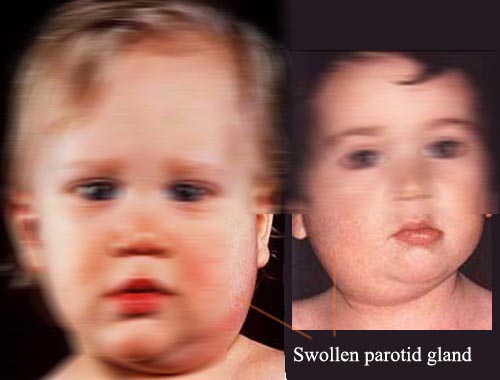Mumps (Parotitis)
Mumps is a disease caused by a virus that usually spreads through saliva and can infect many parts of the body, especially the parotid salivary glands. These glands, which produce saliva for the mouth, are found toward the back of each cheek, in the area between the ear and jaw. In cases of mumps, these glands typically swell and become painful. Mumps was common in the United States until mumps vaccination became routine. Since then, the number of cases has dropped dramatically, so your odds of getting mumps are low. Complications of mumps, such as hearing loss, are potentially serious, but rare. More serious complications of mumps, such as meningitis, encephalitis, and orchitis, can occur in the absence of parotitis, potentially delaying the accurate diagnosis of the disease. Diagnosis can usually be made based on the characteristic clinical features of parotitis and prodrome alone. Laboratory diagnosis is based on serological or salivary confirmation, detection of viral nucleic acid, or isolation of the virus from body fluids. Treatment is symptomatic, and the disease can be prevented largely by routine vaccination. The mumps vaccine is used almost universally in developed countries, as part of MMR (measles, mumps, and rubella) vaccine. Sporadic outbreaks have occurred in highly vaccinated populations, leading to suggestions that the vaccine's efficacy may not be as high as originally thought and that vaccination policy should be reviewed, perhaps to include 3 doses.
